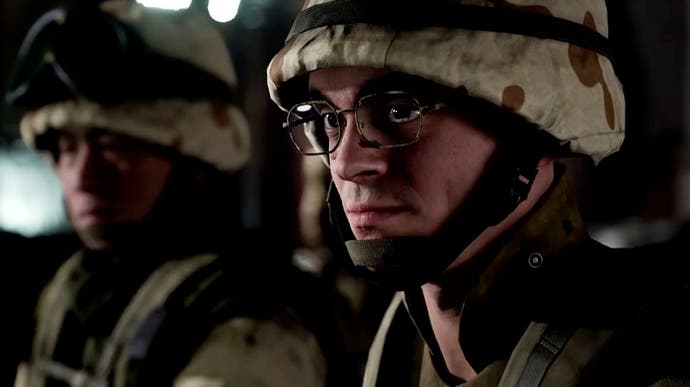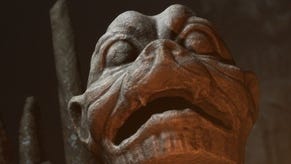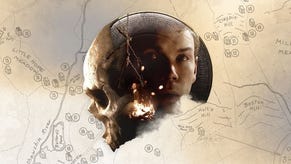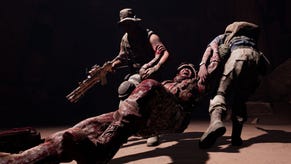House of Ashes review - The Dark Picture anthology's best entry yet
Dust to dust.
The Dark Pictures Anthology has been shaking up the horror genre in gaming ever since players boarded the ill-fated Man of Medan in 2019. The spooky tale of ghost town Little Hope followed soon after in 2020, and now, in 2021, we're trapped underground in a Mesopotamian temple in the early noughties as the Iraq war blazes overhead. It's been a delight to see the Dark Pictures Anthology surprise players with unexpected twists and turns with every new instalment, and House of Ashes is no exception.
In House of Ashes, you switch control between five characters who find themselves trapped in long-lost ruins after what should have been a routine mission goes wrong. Soon enough, they find themselves stalked by something other lurking in the darkness. As is now tradition with this series, all of these core five characters can either survive or die depending on what you do and what choices you make.
The characters are introduced broadly at first, but you don't need to conform to the descriptions given of them. Even those who seem brash or irritating in the beginning have the potential to grow on you by the end - House of Ashes leaves plenty of time for you to get to know everyone and there are no weak links in the cast. Personal favourites were CIA officer Rachel King - played by Ashley Tisdale - and Iraqi Army lieutenant Salim Othman. There are additional characters outside the core five, who are often the wild cards of any situation the longer you can keep them alive.
Mechanics-wise, players who have played a Dark Pictures game before will know what to expect here. As you progress through the game, you'll be given choices on what to say and how to act, and then at key moments, there'll be a variety of quick time responses you'll need to give in order to overcome obstacles. Mash a button quickly to close a door on an enemy, for example, or find a target on screen and react before the window of opportunity is lost. Beware though - sometimes doing nothing at all is the best way to keep everyone alive.
Outside these call and response scenarios, you'll be able to freely control a character in third person as you explore the ruins, and for the first time in the series the camera in these segments is player-controlled rather than set at a fixed angle. If you're worried the change would rob the game of tension, rest assured House of Ashes is still utterly terrifying - but the camera does struggle at times with the confined spaces characters frequently find themselves lodged in. Combined with the very slow walking pace and turning circle everyone seems to have - no doubt a conscious choice to keep as much of that tension as possible - it makes some of the moments spent wandering around in the game a lot less immersive than they should be.
It's one of the few technical issues in an otherwise polished package though - if you're playing on PS5 remember to pull down decisively on the right trigger in moments that call for it, as I'm fairly sure that one of my characters would still be alive otherwise. But the great thing about House of Ashes is how no matter what decisions you make, sometimes it all boils down to one split-second and how quickly you can react, making for an atmosphere of dread and pure tension that few other games can replicate. That you can change the course of the story so easily - and that the game ruthlessly saves in such a way that it's impossible to undo your mistakes - is brave and bold high-stakes storytelling, and it makes House of Ashes a thrill-ride from start to finish.
It's difficult to get into the details of the story for fear of spoilers, but I'll talk about what I can. There was some concern that the premise of the House of Ashes, centring around a squad of specialist soldiers trained for combat and armed to the teeth, would diminish some of the scare factor of the other Dark Pictures games. Those fears were unfounded, I'm pleased to say - from the moment these marines arrive in this subterranean maze they are scattered and completely unprepared for everything that awaits them.
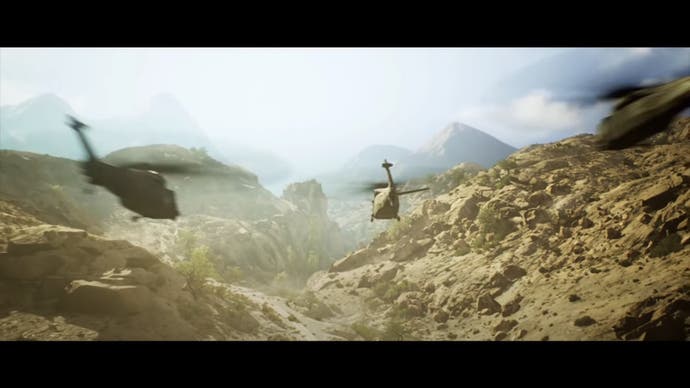
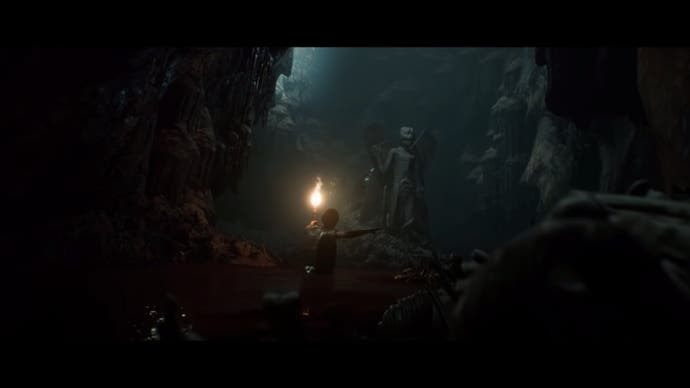
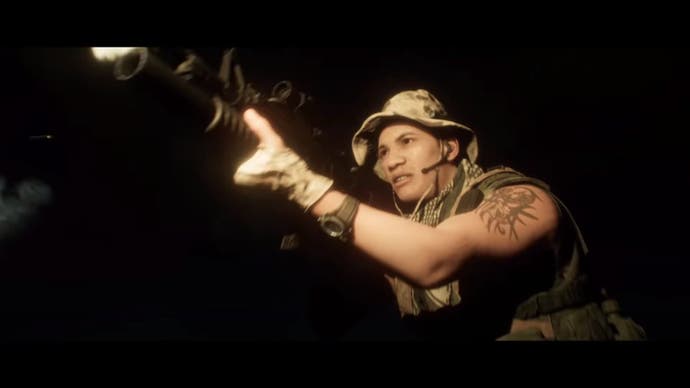
It's impressive how developer Supermassive consistently finds ways to subvert player expectations in terms of narrative and gameplay, especially given that mechanically, the format is very familiar to fans by now. It's a great showcase in how the dialogue, performances and overall presentation of the Dark Pictures Anthology is only getting better with each subsequent instalment - House of Ashes is perhaps one of the strongest entries yet.
Of course there are more than a couple of the obligatory jump scares, but the game does a great job of maintaining a more slow-burning sense of fear too. These characters are but children standing in the houses of the dead - temples built to honour deities thousands of years old. As you peer into the darkness, wondering what might be peering back, you get that this is an ancient evil, something far beyond your characters' mere mortal comprehension. Mythology fans will find plenty to enjoy here, as the game dives deep into Mesopotamian antiquity. You'll get even more background on its influences if you hunt around for secrets, but know that demon king Pazuzu probably doesn't have the best interests of our characters at heart.
It all perhaps takes a turn into the outright ridiculous by the end - though that's of course according to personal taste - but it doesn't outstay its welcome nor does it ever become predictable - the cardinal sin of any horror. Outside of the scares though, the story just wouldn't work if we didn't care about those in peril, and these are some superbly crafted protagonists, carrying with them just enough personal baggage to make things that little bit spicier.
You have Rachel King, her estranged husband Eric, and the man she's only recently started seeing, Nick. Even the most stereotypically 'oo-rah' soldier Jason - who has literally scribbled "Remember 9-11" onto his baseball cap - isn't as one note as you might think, and should they both survive, his interactions with Iraqi soldier Salim are sensitively handled. Salim is by far the character you'll want to root for the most, a dad and husband drawn into a conflict he doesn't believe in who just wants to live long enough to wish his son a happy birthday.
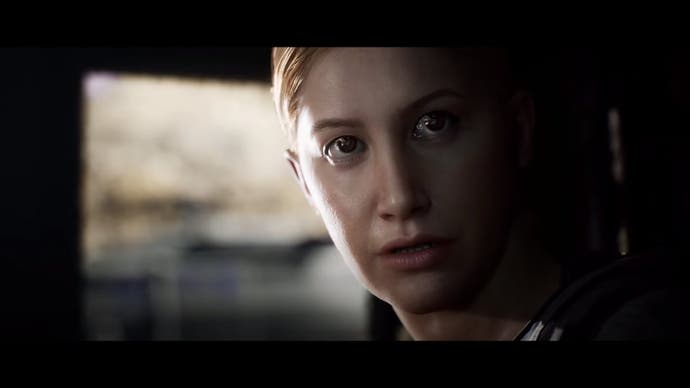
Not everyone will be into the tale House of Ashes is trying to tell and indeed the way that it tells it - if you're the type of person to roll your eyes at QTE segments in games you might not find this to your liking. The series' incredibly patient approach to choice and consequence might well lead some to frustration. Some choices you make have clear and immediate consequences - help a friend or turn tail and flee, for example - but other outcomes will not become apparent until literal hours later in the story, and these can be so monumental that you would never have seen the connection save for the 'bearings' feature in the game menu that lists the lead-up to each pivotal moment step by step. If you're looking to 'win' the game you may simply need to lean into its replayability. The great thing is House of Ashes doesn't feel like another morally binary game - choices are almost never an obvious case of 'good' and 'bad' - the best way to play is simply honestly, either to your interpretation of the characters or how you see yourself reacting in a similar scenario.
House of Ashes is an impressive slice of horror. It's literal edge of your seat stuff for a large portion of its play time, and should you be interested, you can play cooperatively with friends as well as solo. There aren't big change-ups made in terms of gameplay, but there is a solid story here with some great writing and equally great performances - and that alone is worth an oo-rah.
